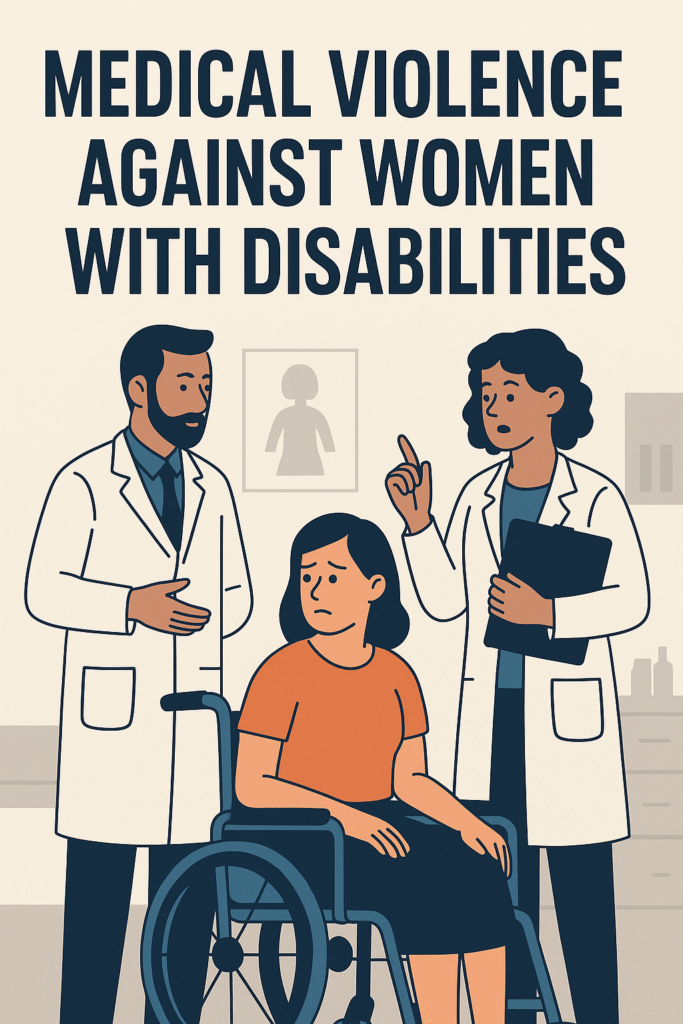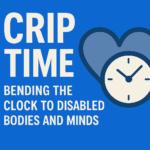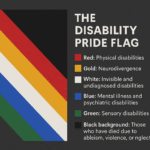Women with disabilities are being sterilized without consent, denied reproductive healthcare, and excluded from basic medical services — all under the guise of protection. What should be safe spaces — hospitals and clinics — are too often sites of control, coercion, and harm.
This is not a glitch in the system. This is the system — and it’s time we talked about it.
“I wasn’t sick. I just wanted a check-up. But they said I didn’t need to worry about getting pregnant — and then made the decision for me.”
What Does Medical Violence Look Like?
Medical violence against disabled women comes in many forms — often invisible, but deeply damaging:
- Forced or coerced sterilization
- Denial of contraception or abortion
- Maternity care refusal
- Inaccessible facilities
- Speaking only to caregivers, not the patient
Real Stories, Real Harm
“In Bhopal, 11 women with psychosocial disabilities were sterilized at a government facility without consent. In Bihar, a Dalit woman with a locomotor disability gave birth outside a hospital after being denied entry.”
These are not isolated cases. They are part of a pattern — one that reflects how deeply healthcare systems continue to devalue the agency and dignity of women with disabilities.
Tech Is Failing Disabled Women
Telemedicine could have been a breakthrough. Instead, it became another gatekeeper.
- No sign language interpretation
- No screen reader support
- Health records accessed without consent
- Apps that lock out anyone who can’t tap, scroll, or read fast
The result? Digital healthcare is becoming just as discriminatory as physical spaces.
What’s Driving This?
It’s not just ignorance — it’s bias. Doctors often assume disabled women are:
- Asexual or not sexually active
- Unfit to raise children
- Not capable of making decisions
These assumptions lead to coercion, silence, and procedures done behind closed doors, without the patient’s voice.
What Can We Do? (Solutions)
This crisis is solvable — but only if we act.
✅ Ban forced sterilization with clear legal language
✅ Train every healthcare worker on disability rights and SRHR
✅ Make clinics and platforms truly accessible (physically and digitally)
✅ Include disabled women in policy-making, tech design, and healthcare leadership
✅ Protect health data and consent for every patient
How You Can Help
Change starts with action. Here’s what you can do:
- Share this post using #SRHRJustice and #DisabilityRights
- Ask your local representative what they’re doing to protect SRHR for disabled people
- Follow and support organizations led by disabled women
- Talk about this. In your schools. Your clinics. Your networks.
Because silence protects systems. Speaking out protects people.
“Healthcare should heal, not harm.”
Forced sterilization, tech-enabled exclusion, and ableist healthcare systems are harming women with disabilities in India and across the globe. But through intersectional advocacy, inclusive design, and strong legal reform, we can create a future where every woman controls her own body and her own story.



